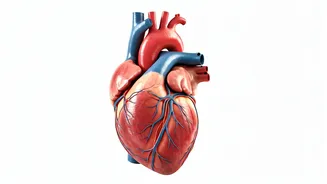Diet and Nutrition
The cornerstone of a healthy heart lies in what you eat. A balanced diet rich in fruits, vegetables, and whole grains is essential. Opt for lean proteins
like fish and poultry, while limiting red meat intake. Focus on incorporating healthy fats found in avocados, nuts, and olive oil, and cut back on saturated and trans fats found in processed foods. Controlling portion sizes is equally critical to prevent overeating and maintain a healthy weight. Hydration is also a key factor; drinking plenty of water helps your cardiovascular system function effectively. Regularly monitoring your intake of sodium is also crucial, as excessive sodium consumption can elevate blood pressure. By making conscious dietary choices, you are taking a proactive step in fostering a healthy heart and reducing risks.
Exercise Regularly
Engaging in regular physical activity is another critical aspect of heart health. Aim for at least 150 minutes of moderate-intensity exercise, such as brisk walking or cycling, per week. Alternatively, you can opt for 75 minutes of vigorous-intensity exercise, like running or swimming. Exercise strengthens the heart muscle, improves blood circulation, and helps control weight and blood pressure. It can also reduce stress and improve overall mood, positively impacting heart health. Find activities you enjoy, so that you are more likely to stay consistent. This could include joining a sports team, attending dance classes, or simply taking the stairs instead of the elevator. Regular exercise contributes significantly to a healthier and more resilient cardiovascular system, and contributes to the overall well-being.
Manage Stress Levels
Chronic stress can significantly impact your heart health. High stress levels can lead to increased blood pressure and other cardiovascular problems. It is, therefore, vital to manage stress effectively. Explore relaxation techniques such as deep breathing exercises, meditation, or yoga. Engage in activities you find enjoyable, like spending time in nature, pursuing hobbies, or socializing with friends and family. Practicing mindfulness helps you stay present and cope with stressors in a healthier manner. If stress is overwhelming, consider seeking help from a therapist or counselor. Implementing these stress-reducing strategies can safeguard your heart and enhance your overall quality of life.
Regular Health Check-ups
Regular check-ups with your healthcare provider are crucial for monitoring your heart health. Routine screenings can help detect potential issues early, when treatment is often most effective. These check-ups typically involve blood pressure checks, cholesterol level assessments, and other relevant tests. Discuss any family history of heart disease with your doctor to assess your risk factors. Adhere to your doctor's recommendations for managing any existing conditions, such as high blood pressure or high cholesterol. Proactive healthcare measures and consistent monitoring are crucial for detecting and preventing serious heart-related health problems, ensuring a healthier future.
Avoid Smoking and Limit Alcohol
Smoking is one of the most significant risk factors for heart disease. It damages blood vessels, increases blood pressure, and raises the risk of blood clots. If you smoke, quitting is one of the best things you can do for your heart health. Seek support through smoking cessation programs, nicotine replacement therapies, or counseling. Excessive alcohol consumption can also harm your heart. Limit your alcohol intake to moderate levels: up to one drink per day for women and up to two drinks per day for men. By avoiding smoking and limiting alcohol, you dramatically reduce your risk of developing heart disease, thus improving your overall well-being.











